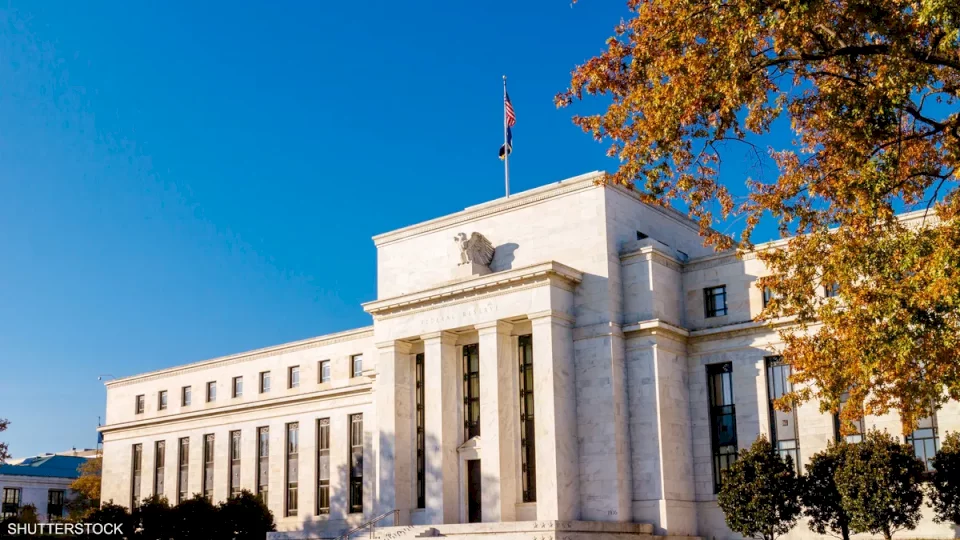
US Federal Reserve Takes a Quick Hit After Its Decision to Maintain Interest Rates
SadaNews Economy - Just a few days have passed, and it seems that the recent decision by the Federal Reserve regarding interest rates has completely lost its validity.
The US central bank announced on Wednesday that it would keep borrowing costs unchanged, continuing the wait-and-see policy it started in January.
On the same day, Chairman Jerome Powell stated to reporters that the strong labor market gives policymakers enough time to monitor the impact of tariffs imposed by President Donald Trump on prices before deciding on resuming interest rate cuts to support jobs without causing a resurgence of inflation.
Job Data Reveals Labor Market Fragility
Just two days later, data revealed that the labor market is much weaker than Powell indicated.
While it may take some time to ascertain the full picture, initial indicators are not favorable for the Federal Reserve.
The board may find itself in an embarrassing position, and no comments from the Federal Reserve on these developments have been issued yet.
Only 73,000 Jobs in July and Rising Unemployment Rate
On Friday, the US Department of Labor reported that the economy added only 73,000 jobs in July, a figure significantly below the minimum monthly requirement to keep up with population growth.
The unemployment rate also rose from 4.1% to 4.2%.
Worse still, the department made a sharp downward revision to employment data for the previous two months, which deepened the negative outlook.
According to the adjusted data, the average job growth from May to July was the weakest since 2009, excluding the recession caused by the COVID-19 pandemic in 2020.
Powell May Regret the Decision to Maintain Rates... Division Strikes Within the Fed
Jamie Cox, managing partner at Harris Financial Group, commented on Friday: Powell will likely regret keeping rates unchanged this week.
However, it is clear that Powell's perspective was not a consensus within the board, as the Fed’s recent decision faced rare internal dissent not seen in decades.
Both board member Christopher Waller and Vice Chair for Supervision Michelle Bowman voted against the decision, marking the first time more than one member of the Fed board has opposed a decision since 1993.
In statements released on Friday, Waller and Bowman indicated that signs of weakness in the labor market were the main reason for their opposition to the decision, while downplaying the impact of the tariffs imposed by Trump on prices.
It is worth noting that Congress mandates the Fed to work on containing inflation while addressing labor market weaknesses simultaneously.
The Labor Market Has Become Less Dynamic
Bowman stated that "the labor market has become less dynamic and shows increasing signs of fragility," adding that only a few industries were responsible for job growth this year, which continued into July according to the latest data.
Nonetheless, some decision-makers at the Fed believe it is far too early to say that the board made a mistake.
Beth Hammack, President of the Federal Reserve Bank of Cleveland, said in an interview with Bloomberg after the job report was released: The report is certainly disappointing, but when I look at the data, we try not to over-interpret any single report; I feel confident in the decision we made this week.
Quick Rate Cuts After Unemployment Surprises
Last year, after the unemployment rate rose sharply in a short period, the Fed faced similar criticism for delaying interest rate cuts.
However, it responded with a bold move, cutting the interest rate by half a percentage point all at once to avoid further deterioration.
By the end of last year, it became clear that the labor market was not collapsing as rumored, as the economy added 323,000 jobs in December, and the unemployment rate at that time fell from 4.2% to 4.1%.

Oil Drives Saudi Economy to Highest Annual Growth Since 2022

Egypt Restarts Sugar Exports After Three-Year Hiatus

Europe Will Not Use the Exit from U.S. Treasury Bonds as a Weapon

The Rise of the Euro Threatens the European Central Bank's Inflation Strategy

Apple Pays Two Billion Dollars to Acquire an Israeli Startup.. What's the Story?

Gold and Silver... From Historical Peaks to Collapse

Partial Financial Shutdown Begins in the United States with Anticipation of Quick Resoluti...
